Premium Only Content
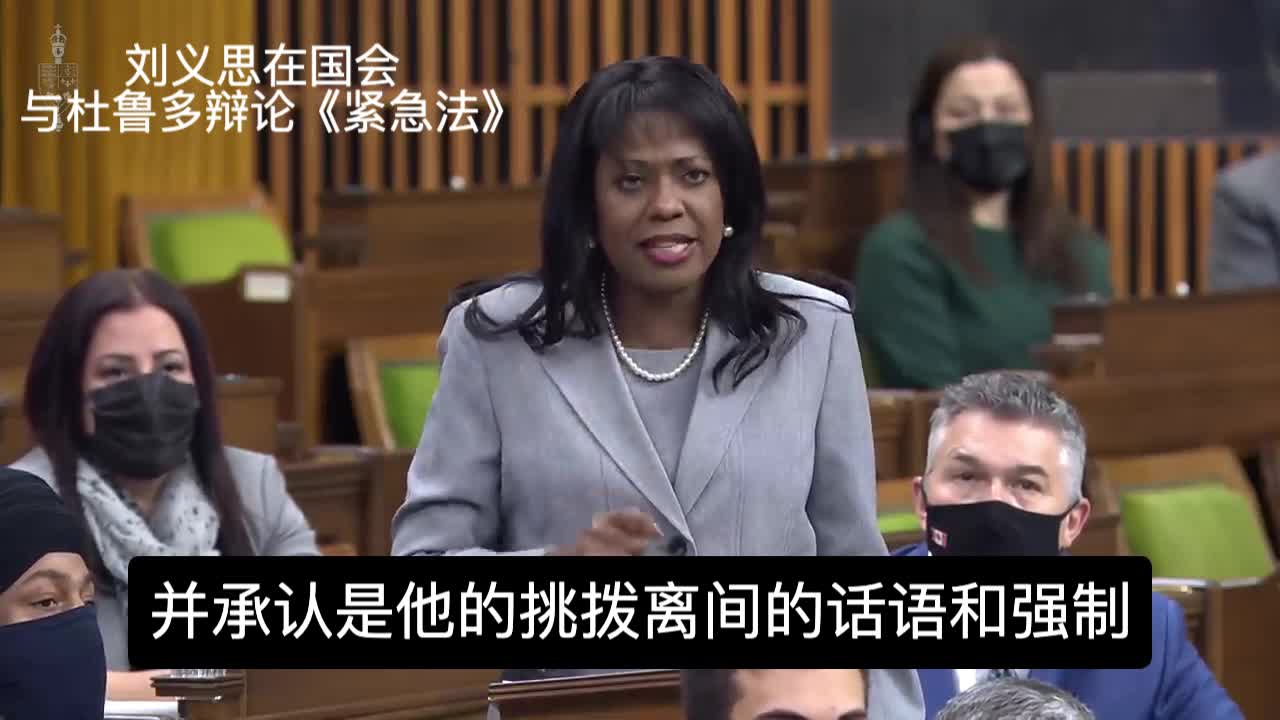
Leslyn Lewis debating Trudeau in the House of Common about the use of Emergencies Act
I was five years old when I arrived in Canada.
I remember the first day landing at the airport and
then going... We took the subway home, and I didn't
know what the houses were like in Canada.
And so when I was in the subway, I remember
seeing a blue light at the end of the stall, the
stand that we stand on, and thinking that, okay, maybe you
go up that ladder and go into that blue light, and
behind there, that's where the house was.
And then I remembered being at school in the
wintertime and really wanting to play outside in the
snow and then getting that opportunity to do that.
But then it got so cold, and the 15 minutes
seemed like such a long time, and I so desperately
wanted to go back in because I thought, I just
want to play a little bit and go in.
And there was no way to get
back in because it was recess time.
So I had to get acclimatized to that.
At five years old, I had such a totally
different concept of what Canada was and what my
life would be like, and everything was just unfolding.
My neighborhood growing up was a very diverse neighborhood
where people came from all over the world.
And primarily, I would say it was
a great neighborhood, and it still is.
It was the East York area around the Danforth.
And despite us coming from various parts of the
world, we all enjoyed each other's culture and we
celebrated each other's food, each other's music and occasions.
And we didn't really have different months to mark our
celebrations, but we just did this on a daily basis,
and that's just what it meant to be Canadian,
and growing up in Canada. Our parents told us,
work hard and go to school, get a good
education, and that's what's going to distinguish you.
And I don't think it was that that
really pushed me towards continuing in my studies.
Somehow there was just this notion that I had to
continue even when I did my Masters of Environmental Studies.
It wasn't something that was lucrative.
It wasn't something that I would get a job from.
It was just something that I just knew I had to do.
Because somehow I knew that those skills would be applied
at a certain point in time, and not only for
my benefit, but just for the betterment of society.
So what inspired me to be a lawyer
was I've always just wanted to help people.
And when I was younger, I talked a lot, and
so my father gave me a nickname, the Little Barrister.
So before I even knew what a barrister was,
I knew that it was somebody who talked for
a living, and it was just stuck with me.
And I always just knew that I would go into law.
And then once I found out what the profession was about,
I knew that there was a real profound ability to effect
change and to impact on the lives of people.
And so it was something that
I was very desirous of doing.
I've had quite a few defining moments in
my law career that has impacted me.
I think some of them were the most emotionally
draining cases that I've had to deal with.
But I think one of the most profound moments that
I've had as a lawyer was when I left Bay
Street and I had to kind of juggle and make
sure that I could make ends meet.
And I didn't have the corporate clients,
and I had to start all over.
And so I started doing criminal law.
And I remember one incident that there
was a young man, and he was
charged with assaulting his same sex partner.
And at that point in time, HIV
wasn't very known, and also same sex
partners weren't something that was very common.
And so there was a lot of
shame around his act in the court.
And also, he was HIV positive, and so they didn't
know how to bring him up to the courtroom.
And every time I talk about it, I get emotional.
So they didn't know how to bring him up to the
courtroom with the rest of the people that were... Sorry.
I get very emotional when I talk about it.
Give me a minute.
I haven't talked about it in so long.
And it happened years ago, right?
I was doing duty counsel, and so I noticed
that two days have gone by and this person
without a criminal record hasn't had his bail hearing.
And so I had a day off, and then I went back, and
I think this was maybe the fourth or the fifth day, and I
noticed he was still not brought up for a bail hearing.
So I went down and I said, what's happening?
You're not being brought up for a bail hearing.
So then I spoke to the guards
and I said, what's going on?
Why isn't this person without a criminal
record brought up for a bail hearing?
It's been more than 24 hours.
The law states that everybody is obligated.
Even if you're a murderer, you are
obligated to be brought before the court
within 24 hours for your bail hearing.
So then they said, Oh, we don't know.
We haven't had time because we
can't bring him in with population.
And so that really really upset me.
And so I went in the court, and I remember
just, like, really really getting very angry, which I don't do
very often in professional settings, but I was very very upset.
And I told the judge, I said,
he has to have a bail hearing.
It's been five days.
And then he also told me that he was sleeping
on the floor because they didn't know where to put
him, they didn't have a bed for him, and that
they didn't give him his HIV medication for five days.
So I was very upset.
And I spoke to the judge and I said, I don't care.
Clear out the entire courtroom and bring
him in for his bail hearing.
He had a good plan to make sure that he
wouldn't reoffend and that there was no public danger.
And so he walked out of there.
He got his bail hearing and walked out of there.
And then I remember after that the media
just coming after me and saying what happened
and trying to get an interview.
And I thought it was no big deal what
I did, because it was just somebody who...
That's what I was trained to do as a lawyer.
I saw injustice and I saw somebody
being treated in a sub-human way.
And I don't know if it's my faith or the
way I was raised, but I knew something was wrong
and that a person should not be treated that way.
And I had to do something about it.
I remember that.
And I always think about him.
Well, my dream for Canada is to see a
really united country, to see us overcome our differences,
to see us build a nation that's based on
love and compassion and be a prosperous nation, to
recognize our natural endowments, to be able to develop
our natural resources and to build our country and
be self-reliant and also to be a beacon of
hope and opportunity for countries around the world.
I know that when my parents immigrated here,
they came here because of the democracy.
They came here because of the Canadian dream.
They came here because of the fundamental freedoms,
freedom of religion, freedom of expression, freedom of association,
freedom of belief, and also the freedom to earn a
living and to make a good living and to
build a future for their children.
And so I feel that these freedoms
are being eroded in many ways.
And so I'm very very concerned.
And I think that my vision for Canada was just to
see a restoration of our democracy, these fundamental freedoms, and for
us to be self-sufficient and to be a beacon of
hope and opportunity for all around the world again.
My message for Canadians would be to be
united, always look for the good, and that we
can build this country based on honor.
We have to restore honor.
We have to demonstrate that we
have certain values that we respect.
And we do that by the way we vote.
We do that by helping our neighbor.
We do that by building this country and
making sure that there's opportunities for future generations.
And I think that it's just very important to know that
we are at a crossroads and we can determine our future.
And that future could be one that's
based on love, honor and mutual respect.
-
 LIVE
LIVE
Matt Kohrs
11 hours agoRumble CEO Chris Pavlovski Talks $775M Tether Partnership || The MK Show
2,582 watching -
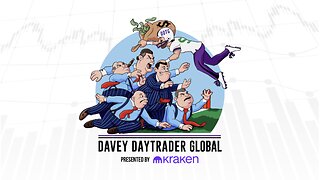 28:23
28:23
Dave Portnoy
11 hours agoDavey Day Trader Presented by Kraken - December 23, 2024
2.67K7 -
 59:29
59:29
BonginoReport
2 hours agoTrump, Murder Plots, and the Christmas Miracle: Evita + Jack Posobiec (Ep.110) - 12/23/2024
18.9K30 -
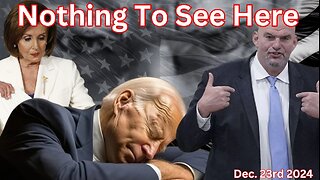 LIVE
LIVE
Wendy Bell Radio
5 hours agoNothing To See Here
12,273 watching -
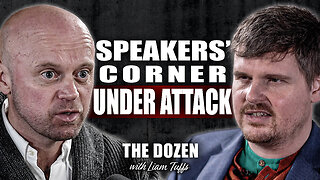 2:12:18
2:12:18
TheDozenPodcast
21 hours agoIslam vs Christianity: Bob of Speakers' Corner
45.6K13 -
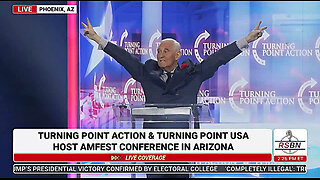 14:36
14:36
The StoneZONE with Roger Stone
1 day agoRoger Stone Delivers Riveting Speech at Turning Point’s AMFEST 2024 | FULL SPEECH
48K19 -
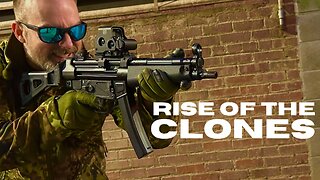 18:59
18:59
Fit'n Fire
11 hours ago $4.23 earnedZenith ZF5 The Best MP5 Clone available
18K1 -
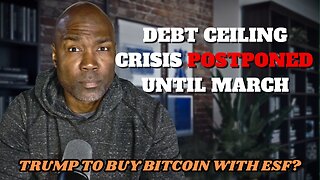 58:34
58:34
Rethinking the Dollar
20 hours agoTrump Faces 'Big Mess' Ahead | RTD News Update
20.5K5 -
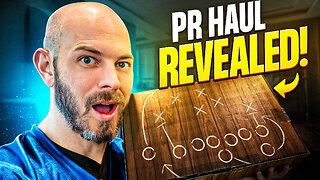 5:35
5:35
Dermatologist Dr. Dustin Portela
20 hours ago $1.44 earnedUnboxing Neutrogena PR Box: Skincare Products and Surprises!
15.9K2 -
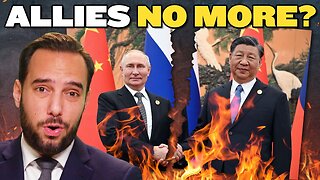 11:20
11:20
China Uncensored
19 hours agoCan the US Exploit a Rift Between China and Russia?
42.3K15